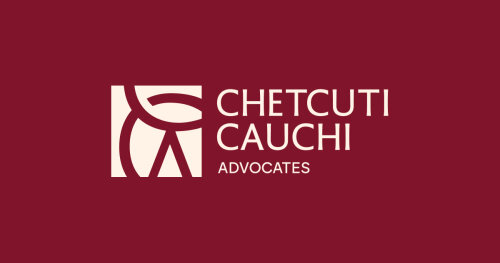Best Acquisition / Leveraged Finance Lawyers in Valletta
Share your needs with us, get contacted by law firms.
Free. Takes 2 min.
List of the best lawyers in Valletta, Malta
About Acquisition / Leveraged Finance Law in Valletta, Malta
Acquisition and leveraged finance involves the funding of corporate acquisitions, including the purchase of companies or assets, typically through a combination of debt and equity. In Valletta, Malta, this field serves both local and international clients seeking to acquire businesses or assets within Malta or using Maltese structures for cross-border transactions. Leveraged finance is commonly used by private equity investors, corporations, and financial sponsors to maximize returns by using borrowed funds while managing risk and complying with regulatory frameworks. Malta, with its established legal system, EU membership, and robust financial services sector, offers a favorable environment for structured finance, merger and acquisition deals, and related funding arrangements.
Why You May Need a Lawyer
Legal support is crucial in acquisition and leveraged finance transactions due to the complexity and potential risks involved. Some common scenarios where individuals or businesses may require legal help include:
- Negotiating and structuring acquisition finance facilities.
- Due diligence on target assets or companies.
- Drafting and negotiating loan, security, and equity documentation.
- Ensuring compliance with Maltese and EU regulations, such as anti-money laundering and competition laws.
- Facilitating cross-border transactions involving Maltese entities.
- Advising on tax structuring and risk mitigation measures.
- Assisting with regulatory approvals from local authorities such as the Malta Financial Services Authority (MFSA).
Lawyers can also help resolve disputes, negotiate with lenders, and provide strategic advice to protect clients' interests throughout the lifecycle of an acquisition or financing deal.
Local Laws Overview
Malta's legal framework for acquisition and leveraged finance is influenced by both national law and EU directives. Key aspects include:
- Company Law: The Companies Act of Malta regulates the incorporation, merger, division, and restructuring of companies. It sets the foundation for acquisitions involving Maltese entities.
- Security and Collateral: Maltese law recognizes various forms of security for loans, including pledges and mortgages. Perfection of security interests and registration requirements must be carefully adhered to.
- Financial Services Regulation: The MFSA oversees licensing and compliance for lenders and financial institutions involved in acquisition finance.
- Insolvency Laws: The Insolvency Regime under Maltese law influences lender rights in distressed asset scenarios, impacting loan structuring and enforcement.
- Anti-Money Laundering (AML): AML regulations require comprehensive client due diligence during finance and acquisition processes.
- Taxation: Malta's tax regime offers specific provisions for corporate restructuring and financing activities, including participation exemptions and credit reliefs.
- Cross-Border Considerations: As an EU Member State, Malta’s laws interact with EU directives, such as the Takeover Directive and the Capital Requirements Directive, which may affect certain transactions.
Frequently Asked Questions
What is leveraged finance, and how is it used in acquisitions?
Leveraged finance refers to using borrowed funds to acquire companies or assets, often secured by the assets being acquired. It enables buyers to maximize their purchasing power while leveraging their own equity investment. In Malta, this is typically achieved through debt facilities such as loans, bonds, or syndicated credits.
What legal due diligence is required for acquisition finance in Malta?
Legal due diligence in Malta involves reviewing the target company’s corporate structure, finances, assets, liabilities, regulatory compliance, intellectual property, ongoing litigations, and applicable contracts. The goal is to identify and mitigate risks before completing the transaction.
Which authorities regulate acquisition and leveraged finance in Malta?
The Malta Financial Services Authority (MFSA) is the main regulator overseeing financial services, banks, and lenders. The Registrar of Companies and the Inland Revenue Department may also be involved depending on the nature of the transaction.
How is security for financing typically taken in Malta?
Common forms of security include share pledges, fixed and floating charges, mortgages over immovable property, and assignments of receivables. These must be properly documented and, in many cases, registered with the relevant authorities to be enforceable.
Are there cross-border considerations for leveraged transactions?
Yes, cross-border transactions can invoke additional regulations, such as EU directives, and may require legal opinions from Maltese counsel addressing choice of law, enforcement of foreign judgments, and conflicts of laws.
Can acquisition financing be structured as both senior and mezzanine debt?
Yes, Malta permits the structuring of multiple layers of debt, including senior, mezzanine, and subordinated loans. Each layer of financing may involve separate security, intercreditor agreements, and priorities in enforcement.
What role does the MFSA play in acquisition or leveraged finance?
The MFSA provides licenses for financial service providers, ensures compliance with regulatory standards, and may need to approve certain transactions, especially in regulated sectors such as banking, insurance, or investment services.
What are the risks of not engaging a lawyer for acquisition finance in Malta?
Not engaging a lawyer may result in overlooking crucial regulatory requirements, ineffective security, unenforceable contracts, tax pitfalls, or exposure to unexpected liabilities. Legal mistakes can be costly and time-consuming to remedy.
How are disputes in acquisition finance typically resolved?
Most disputes are resolved through negotiation, mediation, or arbitration, but they may also be litigated in the Maltese courts. The choice of dispute resolution mechanism should be agreed upon and included in relevant contracts.
What is the process for enforcing security in Malta?
The process for enforcement depends on the type of security. For example, pledge of shares or bank accounts allows the lender to sell the pledged asset upon default. Judicial or out-of-court enforcement procedures may apply and are governed by specific statutory rules.
Additional Resources
- Malta Financial Services Authority (MFSA): The main financial regulator overseeing acquisition and finance transactions.
- Registrar of Companies: Responsible for business registration, filings, and corporate changes.
- Malta Chamber of Commerce: Offers guidance and business resources, including support for mergers, acquisitions, and investments.
- Institute of Financial Services Practitioners (IFSP): Professional association that provides expert guidance in financial services law and practices.
- Malta Business Registry (MBR): The central platform for business-related legal filings and company information.
Next Steps
If you or your business is considering an acquisition or leveraged finance transaction in Valletta, Malta, taking the following steps can help ensure a smooth process:
- Identify your legal needs and objectives for the transaction.
- Gather and organize all necessary financial and corporate documents.
- Consult with a lawyer experienced in Maltese acquisition and finance law to review your plans and highlight potential legal or tax issues.
- Request a proposal and fee estimate before engaging legal services.
- Work closely with your legal advisor through the negotiation, documentation, and implementation phases.
- Stay informed about regulatory requirements and deadlines.
- Should disputes or complications arise, seek legal guidance without delay to protect your interests.
Taking early and informed legal advice can minimize risks, ensure compliance, and enhance the value and security of your acquisition or finance transaction in Malta.
Lawzana helps you find the best lawyers and law firms in Valletta through a curated and pre-screened list of qualified legal professionals. Our platform offers rankings and detailed profiles of attorneys and law firms, allowing you to compare based on practice areas, including Acquisition / Leveraged Finance, experience, and client feedback.
Each profile includes a description of the firm's areas of practice, client reviews, team members and partners, year of establishment, spoken languages, office locations, contact information, social media presence, and any published articles or resources. Most firms on our platform speak English and are experienced in both local and international legal matters.
Get a quote from top-rated law firms in Valletta, Malta — quickly, securely, and without unnecessary hassle.
Disclaimer:
The information provided on this page is for general informational purposes only and does not constitute legal advice. While we strive to ensure the accuracy and relevance of the content, legal information may change over time, and interpretations of the law can vary. You should always consult with a qualified legal professional for advice specific to your situation.
We disclaim all liability for actions taken or not taken based on the content of this page. If you believe any information is incorrect or outdated, please contact us, and we will review and update it where appropriate.















